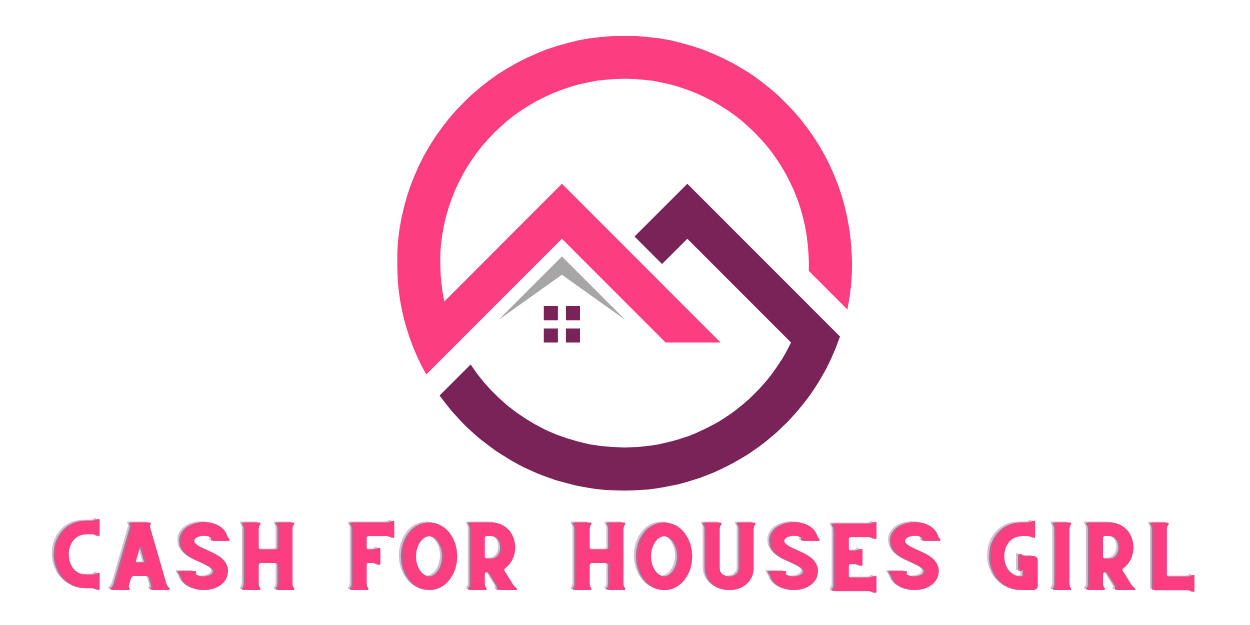
Understanding Homeowners Association (HOA) Dues and Their Importance
Giving money to a Homeowners Association (HOA) is an important part of living in a neighborhood in Richmond, VA, where a HOA runs things. People who own their own homes have to pay these fees regularly. These are gifts of money that are used to maintain the condition of shared areas and facilities.
People who want to buy a home or own one should know how important HOA dues are. Their money is used for landscaping, security, pool, clubhouse upkeep, and other community facilities that make the area look better and raise property values.
It is very important to pay these dues on time because they pay for the HOA’s operating budget, which is what makes everything work. You could get a fine or even go to court if you don’t pay your bills on time. This could hurt your credit score or even put a lien on your home.
People in Richmond who want to buy a home in a community managed by an HOA can check the current status of HOA dues to determine how much money they might have to pay and how well the association is run overall.
Tips for New Homebuyers: Navigating the World of HOA Fees
People in Richmond, VA, who want to buy a house should know about HOA fees and be able to pay them. They’ll have to deal with the problems of not paying them on time. Homeowners associations (HOAs) keep up-to-date with the rules and amenities in a neighborhood. The fees these groups charge can differ from one neighborhood to the next, though.
Before they buy a house, people who want to know how much the HOA fees are do so. There are one-time fees that you have to pay, no matter how often or for how long you pay.
People who want to buy a house should read the HOA’s rules and financial documents very carefully to find out how the money is handled and if fees have gone up in the past or if extra fees have been added without warning. Talking to people who already live there can also help you figure out how open and honest the HOA board is at running things.
If new buyers know about these things ahead of time, they can make better decisions, ensure they have enough money to meet their obligations, and be less likely to fall behind on payments.
Understanding Homeowner Rights and Responsibilities Regarding HOAs
People in Richmond, VA, who own homes or want to buy homes need to know what they can and can’t do when their HOA dues are late. Richmond residents belong to homeowners’ associations (HOAs), and the papers that govern them have rules written down. People who own their own homes must follow these rules, which are known as CC&Rs, which stand for covenants, conditions, and restrictions.
You owe it to others in your community to pay late fees so that services and amenities stay in good shape. Or, the HOA could sue them if they don’t follow through. If they do, they may have to pay late fees or interest.
People who own homes should also know what rights they have when it comes to settling disagreements and finding out how money is spent by the HOA board. People who want to buy a house should first do a lot of research. For instance, they should check the HOA’s bank account and any past-due fees.
These tips will help you manage your money and follow the rules for Richmond HOAs. If you need help or have questions, contact Cash For Houses Girl.
Common Causes of Delinquent HOA Dues in Richmond, VA
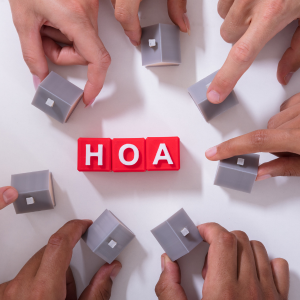
People who live in or are considering buying a home in Richmond, VA, should be aware of a few common reasons why HOA dues are often late. The economy often plays a big role since losing a job or having unexpected costs can make it hard to make payments.
Some homeowners may also put other bills ahead of their HOA dues, which can cause them to be late. The problem can worsen if people don’t understand how important it is to pay on time or what will happen if they pay late fees. This can happen if people don’t know when their payments are due or what the HOA rules are.
People who don’t agree with their homeowners association about services or how it runs the community may choose not to pay as a protest. Also, if people aren’t told enough about the rules of their community when they buy a house, they might not pay their dues on time if they don’t know the specifics.
If Richmond’s residents understand these underlying factors, they will be better prepared to handle problems that may arise when HOA dues are not paid on time.
How Economic Factors Influence HOA Fee Payment Delinquencies
Many people in Richmond, VA, are behind on their HOA fees because of the economy. There are times when people can’t pay their HOA dues because the economy is unstable or going through a downturn.
When unemployment rates and living costs go up, it can be hard on people’s budgets. This is why mortgages, utilities, and other essential costs are paid before HOA fees. Changes in the value of a home can also affect how people feel about their equity. If they think their money is going down in value, they might not pay as often.
Also, if interest rates go up, mortgage payments might go up, too. This means there would be less money for HOA fees. Problems with the economy can also change the minds of potential buyers, which could make people less interested in buying homes in areas with a lot of late payments.
People who already own homes or are considering buying should be aware of these economic factors because they affect how difficult it is to manage or buy Richmond homes governed by HOAs.
Impact of Unpaid HOA Dues on Property Values in Richmond Neighborhoods
Some Richmond, VA neighborhoods can lose value when HOA dues aren’t paid on time. The association might be unable to maintain common areas and amenities if people don’t pay their HOA fees. This can make the neighborhood look less nice.
People who want to buy a home are often drawn to well-maintained neighborhoods. A loss of appeal can turn away potential buyers, bringing down property values. People who don’t pay their dues can also strain the HOA’s finances, which could mean that other residents have to pay more or get fewer services, making the neighborhood even less appealing.
If you don’t pay on time, your finances could become unstable. This could lead to lawsuits or liens on properties, which would make it harder to buy or sell real estate and discourage investment. Many people in Richmond think that one of the most important things about a neighborhood is how stable the HOA is financially.
Because of this, widespread problems with crime can give a place a bad name, hurting the local market and property values in general.
Legal Consequences of Unpaid HOA Fees in Virginia
People in Virginia could get in a lot of trouble if they don’t pay their Homeowners Association (HOA) dues. There are different ways for HOA boards in Richmond and across the state to get people to pay their dues.
People who don’t pay their fees on time may have to pay late fees and interest on the balance. It might be harder for the homeowner to sell or refinance their home in the future if they don’t pay these dues, and the HOA could put a lien on the property.
The association can take the property until the debts are paid off. Also, if you don’t pay your HOA fees on time, they can start the foreclosure process, which could mean you lose your home.
People who own homes in Virginia should know that these things are legal because they are protected by laws that keep the community’s money and property values high. People who want to buy a house in Richmond should check to see if there are any liens or lawsuits pending because of unpaid HOA fees. This way, the buyer won’t be shocked when they discover extra costs after the sale.
Legal Resources Available to Homeowners Facing Foreclosure for Unpaid Dues
For people in Richmond, VA, who are in danger of losing their homes because they haven’t paid their HOA dues, there are a few legal options that can help. First, people who own their own homes should read the rules and regulations of their homeowners association (HOA) and make sure they understand the specific rules and regulations that cover things like foreclosure and fees.
To learn how to defend yourself against foreclosure actions, it can be helpful to talk to a lawyer who has experience with HOA disputes. You could also talk to the HOA or go to mediation. This might help the homeowners develop a payment method that works for everyone.
Also, Virginia law says that HOAs must do certain things before they can start the foreclosure process. As one of these steps, you might give the homeowner enough time and notice to fix the problem before starting the foreclosure process. People who live in the neighborhood may go to court if they believe the HOA has broken these rules or been unfair.
Bankruptcy may be another choice for some homeowners. Chapter 13 bankruptcy can stop the foreclosure process for a while, giving people time to get their finances in order. If people in Richmond know about these legal options, they can deal with problems caused by unpaid HOA dues and protect their rights as homeowners at the same time.
How Richmond HOAs Handles Delinquent Dues: A Case Study Analysis
In Richmond, Virginia, homeowners’ associations (HOAs) have developed specific ways to handle late dues. This case study is interesting for people who already own a home and for people who are thinking about buying a home. Usually, these groups start by sending residents detailed notices that their payments are past due. They stress how important it is to keep up with payments to keep the community healthy.
Some Richmond HOAs go even further if people don’t pay after a few reminders by adding late fees or interest to the amounts that are still owed. Some associations may even make it hard to use community facilities like pools and clubhouses to get people to follow the rules.
In the worst cases of long-term debt, Richmond HOAs may go to court and, for example, put a lien on the property. This process not only shows that these communities are serious about their financial responsibilities, but it also makes people less likely to borrow money in the future.
Anyone buying or selling a home in this busy city would benefit from understanding how local HOAs handle these situations. This knowledge can also help you sell your Richmond, VA, house faster.
Comparing Richmond’s Approach to Delinquent Dues with Other Cities
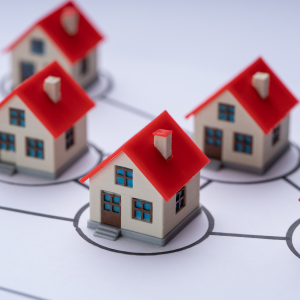
Richmond, VA, handles late HOA fees differently from many other cities. Homeowners’ associations often make it easy for people to talk to each other. They can also help people who are behind on their payments by giving them different payment methods.
There are stricter ways to do things in cities, like fining people or starting legal proceedings. The plans that were used there are different from this one. Richmond does things a certain way to keep the peace in the neighborhood and make sure the HOA has been met.
Some cities may depend too much on outside collection agencies. This can worsen things and make it tough for homeowners and associations to work together. In Richmond, it is more important to use mediation and work directly with homeowners to find peaceful ways to settle past-due bills.
People get along better when they work together in this way, and it also helps keep property values high. When Richmond looks at how things are done in other cities, it’s clear that they want to find a balance between being good with money and keeping the community together. This can help people who want to buy a home in an HOA-controlled area and people who already live there.
The Role of HOA Management Companies in Collecting Delinquent Fees
Homeowners Association (HOA) management companies are very important in Richmond, VA, in collecting past-due dues and keeping track of them. This business helps the neighborhood’s money stay in order by ensuring homeowners’ fees are paid on time.
The HOA management company is responsible for refunding money if the dues aren’t paid on time. To begin with, they send notices and reminders to people whose fees haven’t been paid in a while. Homeowners need to pay their fees so that the community can keep its services and amenities current.
The rules of the association say that management companies can go even further by charging late fees or interest if they can’t solve the problem the first time they try. Once everything else fails, they might hire lawyers to file liens or start foreclosures to get the money back.
By doing these things well, HOA management companies help keep property values high and ensure everyone in the neighborhood does their fair share to keep it in good shape. It’s very helpful that they know how to handle the tricky issues that come up when HOA dues aren’t paid on time. In Richmond’s fast-paced real estate market, it also makes people who own homes or want to buy homes feel responsible.
Strategies for Addressing Late HOA Payments Effectively
If you don’t want more money issues, you need a plan for handling late Richmond, VA, HOA fees. People who are behind on their fees should first call their homeowners’ association (HOA) right away to discuss them and see if there are any payment plans or extensions that are available.
The HOA agreement spells out what could legally happen if you don’t pay your dues on time. So, make sure you read and understand it. Making a payment plan that works can help with money issues right away and ensure that the HOA rules are followed.
People who want to buy a house should find out how much their HOA dues are as part of their due diligence. In this way, they won’t get any debts that haven’t been paid. A real estate lawyer with a lot of experience and knowledge of the HOA laws in Virginia can help you figure out what your rights and duties are. Also, they can ensure everyone knows what to do when tests are late.
If you do something, residents will remember your good name. It will also protect property values and make it easier for homeowners and their associations to get along.
Exploring Payment Plan Options for Overdue HOA Fees
It can be hard for buyers and homeowners in Richmond, VA, to deal with past-due HOA dues. One good idea is to look into different payment plans. If you are behind on your HOA fees, you can catch up. Many homeowner associations offer set payment plans to help you do this.
Most of the time, the total amount owed is split into smaller monthly payments. People who own homes can pay off their debts slowly without exceeding their budget. People who own homes in an HOA need to talk to the management to determine their choices and how to make the terms work for them.
People who want to buy a house that has past-due HOA fees should also find out if there are any payment plans or ways to avoid future assessments before they do so. You should know about these payment plans because they help you pay off past-due bills and keep a good relationship with the association. Because of this, community life in Richmond’s fast-paced real estate market works well.
Communication Techniques for HOAs to Address Late Payments
Homeowners Associations (HOAs) in Richmond, VA, need to communicate clearly with people whose HOA dues are past due. By making sure that the HOA board and homeowners always have clear ways to communicate, you can get everyone to work together.
The first thing you should do is ensure that everyone is aware of their due dates. You want to talk to as many people as you can. This could be done in writing, by email, or in a community. Notices can be sent to people who haven’t paid their bills in a while to remind them how important it is to follow the community’s rules. These notices should also make it clear how late payments hurt community resources.
Meeting in person can help people talk about their issues and get to know each other better if the first attempts don’t work. This might help HOAs look into other options or different payment plans. Homeowners are told to talk to the board ahead of time if they think they will have money issues, which strengthens the relationship between the board and homeowners.
Richmond HOAs can handle late payments better if they build trust and openness in the community. This will help keep the peace in the neighborhood, and Cash For Houses Girl can help by guiding you through a clear, effective process.
What Happens If You Don’t Pay HOA Fees in Virginia?
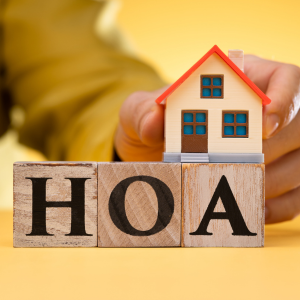
In Virginia, failing to pay HOA fees can lead to significant consequences for homeowners. When delinquent on HOA dues in Richmond, VA, the homeowners’ association may impose late fees and interest on the outstanding balance.
Continued non-payment can result in the HOA placing a lien on the property, complicating future property sales or refinancing efforts. In some cases, associations may initiate legal proceedings to collect the overdue amounts, potentially leading to foreclosure if the debt remains unpaid.
Homeowners facing financial difficulties should proactively communicate with their HOA to explore possible payment plans or resolutions. Buyers considering properties within an HOA in Richmond should thoroughly review the association’s governing documents and financial health to understand potential liabilities associated with delinquent dues.
Understanding these implications is crucial for current and prospective homeowners navigating HOA obligations in Virginia.
What Happens If You Don’t Pay Your HOA on Time?
Failing to pay your HOA dues on time in Richmond, VA, can lead to a series of escalating consequences that homeowners and potential buyers should be aware of. Initially, the homeowners association (HOA) typically issues late fees and interest charges on delinquent accounts, increasing the overall amount owed.
If payments are missed, the HOA may impose penalties such as suspending access to community amenities or revoking voting rights within the association. Persistent non-payment can result in legal action, with the HOA potentially placing a lien on your property.
This lien could complicate selling or refinancing your home and might eventually lead to foreclosure proceedings if unresolved. Navigating these challenges requires understanding your HOA’s specific bylaws and promptly communicating with them to explore payment plans or dispute resolutions.
Prospective buyers in Richmond must conduct due diligence. Before purchasing a property, check for any outstanding dues or liens associated with it to avoid inheriting financial liabilities.
What Happens If Your HOA Sends You to Collections?
When a homeowner in Richmond, VA, faces delinquent HOA dues and the homeowners association (HOA) sends the account to collections, several significant consequences can ensue. Initially, the HOA may attempt to recover outstanding dues through direct communication and late payment notices.
If these efforts fail, the HOA might escalate the matter by hiring a collection agency. This action can result in additional debt fees, including collection costs and legal fees.
Your credit score could also be negatively impacted if the collection agency reports the delinquency to credit bureaus, making it harder for you to obtain loans or favorable interest rates in the future. Moreover, persistent non-payment can result in legal action where the HOA may file a lien against your property.
In severe cases, this lien could lead to foreclosure proceedings on your home. For prospective buyers in Richmond, understanding how an HOA handles delinquent dues is crucial, as it affects both financial stability and community standing.
Therefore, addressing overdue payments promptly is essential for homeowners to avoid escalating penalties and maintain good community relations within their Richmond neighborhoods. If you’re exploring options, we can buy houses in Colonial Heights, VA, and nearby areas and provide a simple, reliable solution.
Is It Legal for the HOA to Charge a Fine for Late Payment?
In Richmond, VA, navigating delinquent HOA dues can be a complex process for homeowners and potential buyers. One common question is whether it’s legal for a Homeowners Association (HOA) to charge a fine for late payment of dues.
In Virginia, HOAs are governed by the Virginia Property Owners’ Association Act, which provides them with certain powers to impose fines and late fees. Typically, when homeowners fall behind on their HOA dues, the association is legally permitted to assess late fees as outlined in their governing documents, such as the Declaration of Covenants, Conditions, and Restrictions (CC&Rs) or bylaws.
It is essential for homeowners and prospective buyers in Richmond to thoroughly review these documents to understand the specific rules regarding late payment penalties. Furthermore, open communication with the HOA board can help clarify any misunderstandings about delinquent dues and associated fines.
By staying informed about these legal stipulations, Richmond homeowners and buyers can better manage their financial obligations within an HOA community.
Looking to sell your home? Sell quickly, avoid expensive repairs, or maintain a hassle-free process. Cash For Houses Girl is here to help. We provide fair cash offers, take care of all the details, and make selling your home easy. Call us at (804) 376-8771 for a no-obligation offer. Get started today!
Helpful Richmond Blog Articles
- Richmond, VA, Vacant Property Regulations And Maintenance
- Sale Of Inherited House With Multiple Owners In Richmond, VA
- Sell Your Richmond House With An Existing Mortgage
- Sell A House With A Lien In Richmond, VA
- Selling A Foreclosure Home In Richmond, VA
- Selling Your Parents’ Home To Pay for Senior Care in Richmond, VA
- Who Pays Closing Costs When Selling A Home In Richmond, VA
- Can You Back Out Of A Real Estate Contract in Richmond, VA
- Delinquent HOA Dues In Richmond, VA
- Sell Your Repair-Needed Home In Richmond, VA
- Selling A Richmond, VA, Home With Foundation Problems
- Do You Need a Lawyer to Sell Your House in Richmond, VA?
- Richmond, VA, Cost of Living
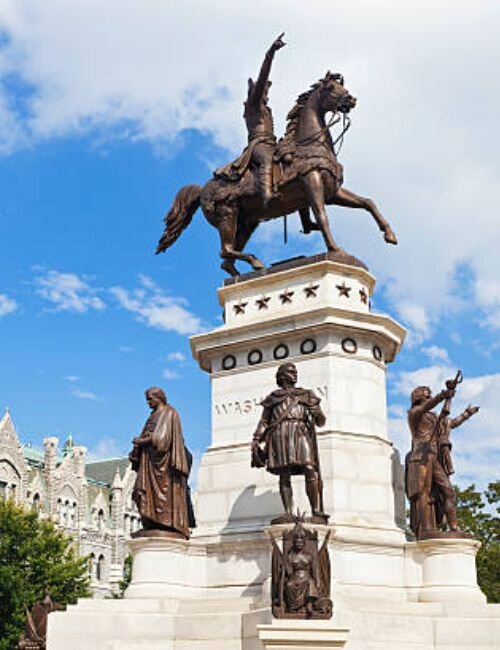
| PROPERTY OWNERS’ ASSOCIATION | PROPERTY OWNERS ASSOCIATION | HOME OWNERS ASSOCIATION | HOMEOWNER’S ASSOCIATION | HOMEOWNER ASSOCIATION | HOMEOWNER ASSOCIATION (HOA) |
| LIENHOLDER | FIRST LIEN | COMMONWEALTH OF VIRGINIA | FORECLOSES | FORECLOSED | FORECLOSURE SALE |
| JUDICIAL FORECLOSURES | REAL ESTATE LAW | SELLER | TAX | TAXATION | LAWYER |
| CONDOMINIUM | FIRST MORTGAGE | SUIT | LITIGATION | VA. CODE | CASH |
| PRIVACY | CONTRACT | UNITED STATES | U.S. | AMERICAN | DEED OF TRUST |
| DEED | BOARD OF DIRECTORS | WILLIAMSBURG | VIRGINIA STATE BAR | TERMS OF USE | REASON |
| POLICY | NEGOTIATIONS | MONEY | INSURANCE | CIRCUIT COURT | OF THE PROPERTY |
| PROPERTY OWNERS ASSOCIATION | PROPERTY OWNERS ASSOCIATION ACT |
